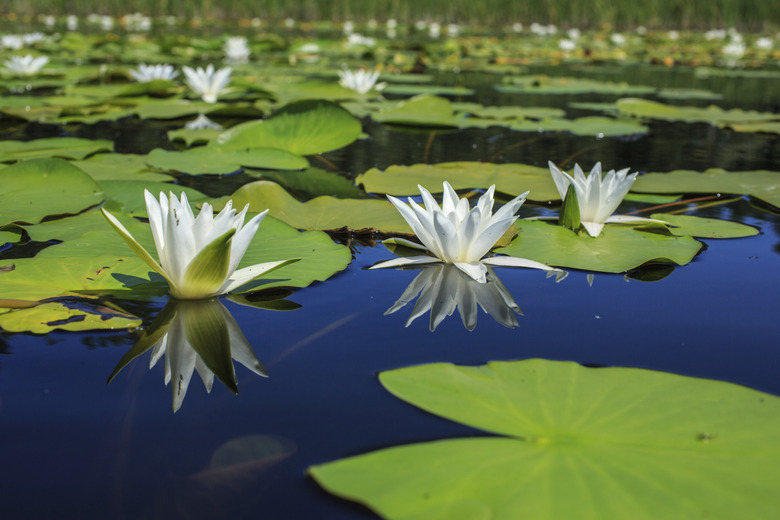Facts On Water Lilies
Water lilies (Nymphaea spp.) are some of the world's most beautiful and recognizable plants. From cold-hardy stalwarts to tender tropicals, they may be hardy from U.S. Department of Agriculture plant hardiness zones 4 through 12. Elegant water lilies are the glorious floral topping to classic frog-laden lily pads.
Types of Water Lilies
Cold hardiness isn't the only difference between the two main categories of water lilies. Hardy water lily varieties flower and bloom only in the daylight. At night, they gently close. Tropical varieties bloom during any time of the day or night, and blooms stay open until they fade.
Beneath the Surface
Though water lilies look as if they are sprouting from the water, they are actually floating on top of the water, with their roots tethered deep into the water-logged soil at the bottom of the lake or pond. The lily pad beneath the flowers is the leaf of the water lily plant.
Flower Features
Water lily flowers are as different as their origins, though their shapes and petals are similar. Hardy, native water lilies have simpler flowers that retain a watery wildflower-like look and are commonly white and yellow. Tropical varieties often have many more petals and more intense colors than the native lilies.
Fun Fact
Besides being the birth flower for July, the blue lotus (Nymphaea caerulea), hardy in USDA zones 10 through 12, is also the celebrated national flower of Sri Lanka, a country off the southeastern coast of India. It is a source of fragrance for perfumes.
Famous Ties
The water lily is an object used repeatedly in the oil paintings of French Impressionist Claude Monet (1840-1926). Monet is widely believed to be the father of the Impressionist movement. His water lily series includes some of his most masterful works.
